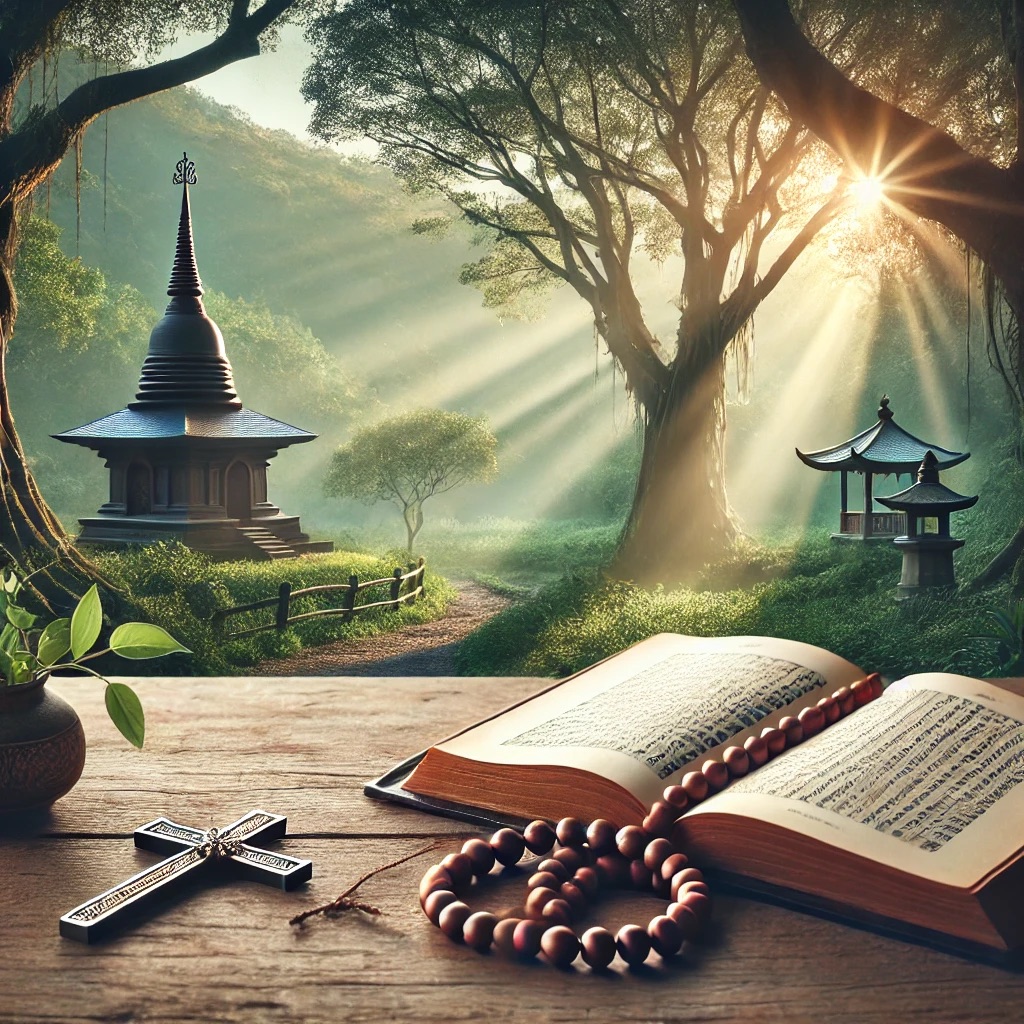In the quiet corners of life, I’ve found myself drawn to the teachings of great spiritual minds—not for their doctrines or rituals, but for the shared wisdom that transcends boundaries. One of the books that’s had a profound impact on me recently is Living Buddha, Living Christ by Thich Nhat Hanh. It’s a work that doesn’t ask you to pick sides but invites you to see the threads that connect us all.
It’s hard not to feel moved by lines like:
“The miracle is not to walk on water. The miracle is to walk on the earth.”
It’s a simple truth, isn’t it? So much of our lives are spent chasing extraordinary achievements, looking for miracles outside ourselves, when the true miracle is just being here, alive, grounded. That quote has stuck with me—on walks with my dog, as I tend to my garden, or even during the brief moments of stillness when the chaos of the day fades away. These moments remind me to stop chasing and start noticing.
Shared Wisdom and Diverging Paths
One of the things I’ve learned from reading Living Buddha, Living Christ is that many spiritual paths, at their core, point to the same truths. Thich Nhat Hanh writes:
“There are many doors to the house of truth. If you are sincere, you will not be wrong no matter what door you enter.”
This resonates deeply. Over the past year, I’ve dipped into Stoicism, explored Buddhism, and revisited ideas from Christianity, and they all seem to circle back to the same central question: How can we live a meaningful life? What I’ve found is that the teachings of Buddha, Christ, and even thinkers like Marcus Aurelius aren’t so different at their core. The problem isn’t the teachings—it’s the human-made walls built around them.
I’ve always felt a tension with organized religion, which Living Buddha, Living Christ reaffirmed. The more I learn about the history of religion, the more I see how human motives have shaped—and at times, distorted—original teachings. It’s not the search for truth that bothers me; it’s the imposition of rules that often have little to do with leading a fulfilling life. Still, the sincerity of the teachings shines through, even when the structures around them feel rigid.
Thomas Merton and Expanding Horizons
One of the unexpected joys of Living Buddha, Living Christ was being introduced to Thomas Merton. Thich Nhat Hanh quotes Merton:
“To be a monk means to take up a life in which the soul may stand naked in the presence of God.”
That image of spiritual vulnerability—of stripping away all pretenses to stand bare before something greater—has inspired me to add Merton’s The Seven Storey Mountain to my reading list. His reflections seem to echo the themes I’ve been exploring: mindfulness, the search for meaning, and the quiet courage it takes to live authentically.
Living the Miracle
As I’ve reflected on these teachings, I’ve tried to integrate them into the fabric of my daily life. Walking my dog isn’t just about exercise—it’s a chance to notice the changing seasons, to feel the ground beneath my feet. Tending to my garden isn’t just about growing vegetables—it’s a practice in patience and care, a small act of creation that connects me to something bigger.
I’m learning to see the world not as a series of problems to solve or milestones to reach, but as a series of moments to live. And maybe that’s the real miracle—finding contentment not in extraordinary achievements but in the ordinary beauty of simply being.
Questions to Ponder
If there’s one thing I’ve taken away from this journey, it’s that the answers aren’t “out there.” They’re in the moments we live, the connections we make, and the ways we find to be present. As I continue this exploration, I invite you to reflect with me:
• What are the small miracles in your life that you might be overlooking?
• Have you found wisdom in unexpected places or teachings?
• How do you balance the search for meaning with the need to simply live?
Feel free to share your thoughts or favorite quotes in the comments—I’d love to hear how others navigate this journey.

Leave a Reply
You must be logged in to post a comment.